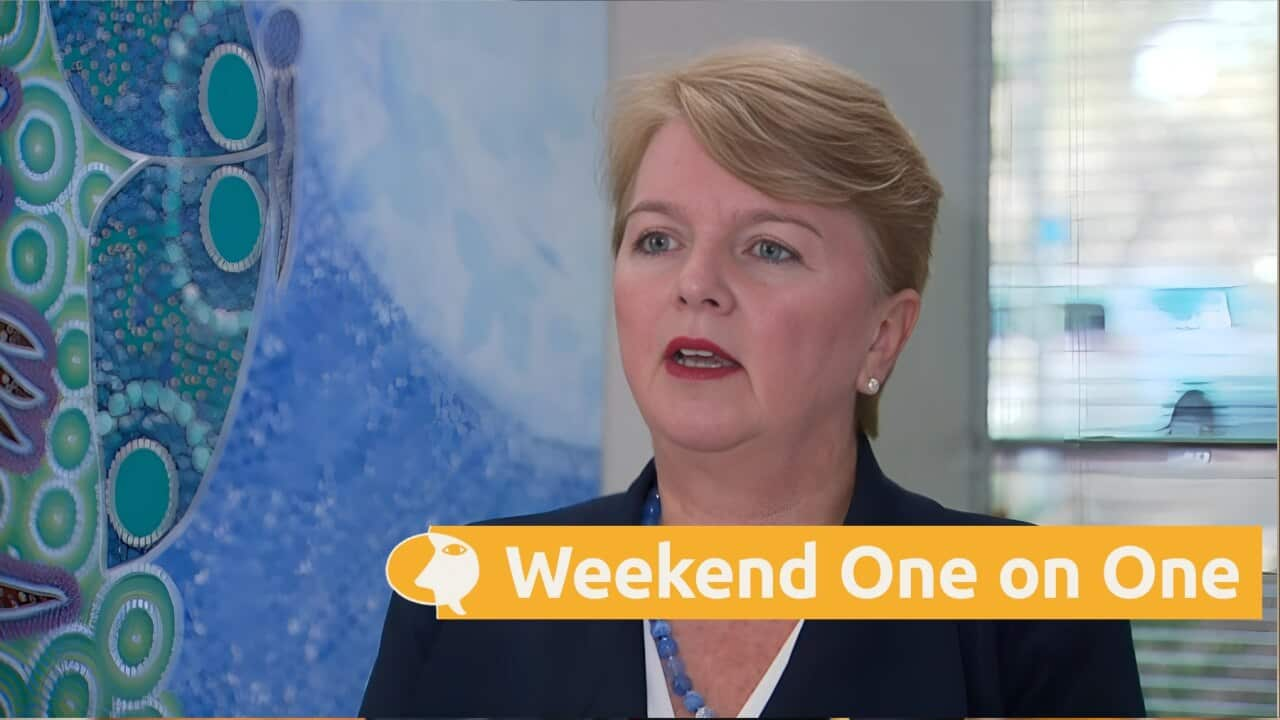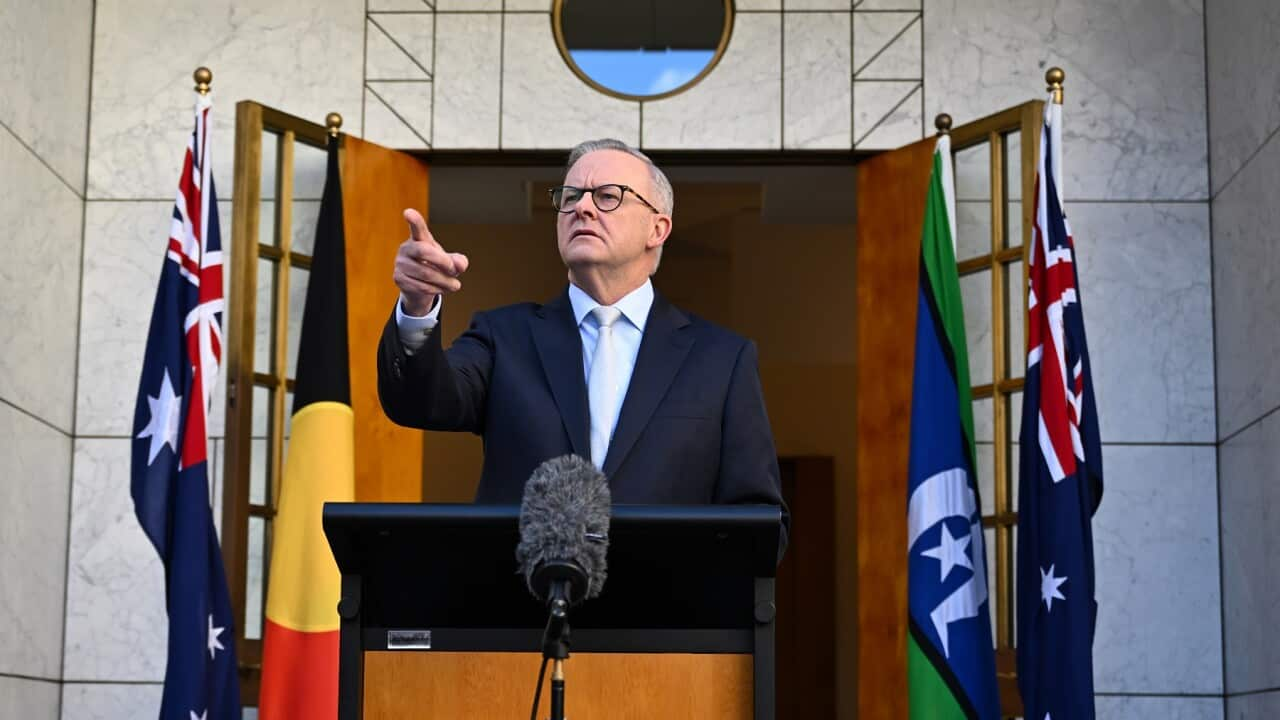TRANSCRIPT
Australian children will first encounter pornography at around 13.
A third of those children will see it younger and often by accident.
Those statistics, released by the e-Safety Commissioner in 2023, are behind what will be the first public inquiry into the impacts of harmful pornography – held in New South Wales.
De-identified submissions to the inquiry ahead of its commencement have exposed a dark underbelly.
Some penned by concerned parents...
"I had to monitor internet access at home and block porn and anime porn sites one by one, as the group continued to send them to my child. They also provided instructions on how to bypass routers and avoid detection."
...some by distressed partners...
"My ... husband's treatment of me ... deteriorated when he began watching pornography on the computer... He treated me more like an object in bed. He did not care about me or my needs. He snuck away at night to watch pornography at work until his boss found out."
...and some, personal testimony.
"I have used pornography since I was 12 years old. I am now 28. I am now an addict... I now use pornography depicting violent and degrading acts, particularly against women. I hate the fact that I feel the urge to use this, but I have become so accustomed to it."
The New South Wales inquiry was established to probe the impacts of harmful pornography – that is, violent and misogynistic content – on mental, emotional, and physical health.
But some argue that very framing could be problematic.
Maree Crabbe is the Co-Founder and Director of 'It's Time We Talked' – a violence prevention initiative related to the effects of mainstream pornography.
She says all free online pornography – violent or otherwise – should be designated as harmful.
"We confuse ourselves with what pornography is. It's a product of an industry that's focused on profit. It's not focused on providing useful information, helpful information about things like consent and respect and mutual pleasure. So, I don't think that very much pornography can play a useful role in young people's sexual exploration or their learning about sex."
So too does clinical psychologist Dr Nicholas Lawless, who argues all pornography should be considered harmful based on the very fact it solicits arousal through a screen.
"We were looking at the impact of being sexually aroused by people that are not your partner and how that impacts on your sexual functioning in the relationship, but also on just your functioning outside of the bedroom in the relationship. And essentially what we found is that just that sexual arousal itself will mean that you are, as in, if the sexual arousal is by somebody, not your partner. You are less likely to be kind to your partner, you are more likely to neglect their feelings. You're more likely to engage in destructive communication strategies. You're more likely to dehumanise them, you're more likely to engage in infidelity. You're more likely to sexually objectify people that aren't your partner."
He also says porn often teaches behaviours that can destroy relationships.
"It's just not real. It's fantasy in terms of how it goes about. It's setting your standards in just the way that you are never going to achieve that standard and so of course, it leads to sexual dissatisfaction. But even in the moment, what's it doing? It's essentially every time you use porn, you are using someone, you're using porn. You don't use porn as this generic thing. You're using the people in the porn. And that is a harmful thing to teach somebody that people are to be used and not to be loved."
Free online pornography routinely depicts gendered aggression, a lack of consent, incest themes, child-like themes and other problematic messaging.
As a result, Ms Crabbe says porn can create deeply troubling perceptions for young people, even leaving them confused about the models of sexuality it purports to empower.
"We've interviewed, for example, young gay men who talk about the gender aggression in gay male pornography where a hyper-masculine male treats a feminised male with the same sort of aggression and degradation that we see in heterosexual porn with a man towards a woman, and the age differences and the lack of consent and the same sorts of aggression and the ways that impacts on particularly their early sexual interactions and how they expect it to be treated and how they have been treated."
Online pornography is also changing the way young people are engaging in sex.
A national study by researchers from Melbourne University Law School and the University of Queensland last year found more than half of young people are now using sexual strangulation – a practice Ms Crabbe says she rarely encountered a decade ago.
She also says those figures should create urgency for a regulatory response that prevents the unfettered reach of the porn industry into children and young people's lives.
"Often it's ostensibly consensual sex that then has become strangulation without consent and therefore a sexual assault. Sometimes those women report pushing someone away, but often what they report is feeling scared for their lives and distressed and going into a mode where they just are trying to work out what they can do to get out of that situation alive. So, often waiting until it's over, holding their breath, hoping that they'll survive it."
But other research appears to throw a definitively causal relationship between pornography and violent behaviours into doubt.
Jarryd Bartle, lecturer in Criminology and Justice Studies at RMIT University, says there has been a misleading conflation of correlation as causality, with relevant research offering mixed bag results at best.
Describing the current discourse around pornography as moral panic, he suggests that intervention strategies should target those with problematic viewing behaviours directly.
"People that have issues in terms of social adjustment, individuals that have characteristics of hypersexuality or any kind of antisocial tendencies, I think that there could be really targeted messaging to those demographics to try and say actually their level of pornography consumption is problematic. What I want to caution against though, because we don't have any good concrete evidence that this is having a broad public health social effect, I would very much caution against any kind of overreaction on a policy basis."
He also says the current landscape of pornography production has further complicated how we talk about its effects, with the industry now quite diffuse.
"Distribution is now a little bit more democratised. And early research, which people have said the content coming out of these large production companies is inherently misogynistic or has all of these particular features attached to it. I'm not necessarily sure that that attaches to say your average OnlyFans content creator and what they're producing. So, I think if anything, the current side of the industry indicates that it's very hard to generalise about what pornography is now given the diversity of production."
Research into the negative effects of pornography has become increasingly saturated.
But Mr Bartle says the limited research that has looked into the social utility of pornography consumption among young people shows that it can actually be sexually liberating.
"For many young people, pornography is their first exposure to sexuality and it can help them understand what they're interested in. It can help them understand basic elements about their own sexuality. So, there's a lot of research looking at LGBT people and how exposure to pornography for them wasn't this net detrimental effect. It actually helped them identify their own sexual orientation. There are beneficial effects of pornography that it can assist with sexual exploration amongst couples."
Those views are shared by Mish Pony, CEO of the Australian Sex Workers Association Scarlet Alliance.
They say a framing of all pornography as harmful from the outset is an unhelpful designation that nullifies the diversity of pornographic material available.
"Pornography is extremely diverse. Different communities use it in different ways, and for some of us it can be very affirming. Those of us with LGBTQIA+ identities, and of course for many sex workers, it's a source of income and our livelihood. So, we really see this inquiry as an ongoing moral panic against pornography."
They also say any reform should involve sex workers, who too want to see positive outcomes around sexual safety and consent.
"There is a backlash against sex work that is being hidden by these concerns around porn. That porn is being used as a smoke screen in an anti-rights agenda that harms sex workers, but also LGBTQIA+ people more broadly. We also want the government to understand that we are partners in porn literacy for young people and consent education."
The inquiry's hearings will be held between the 24th of March and 19th of May.













